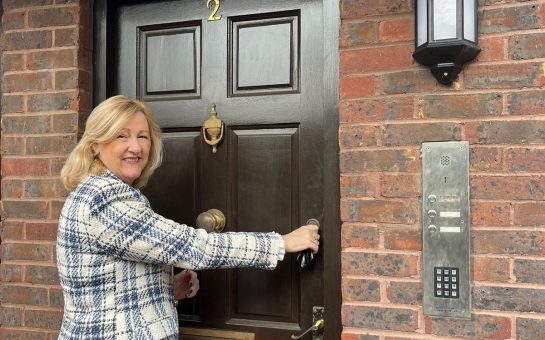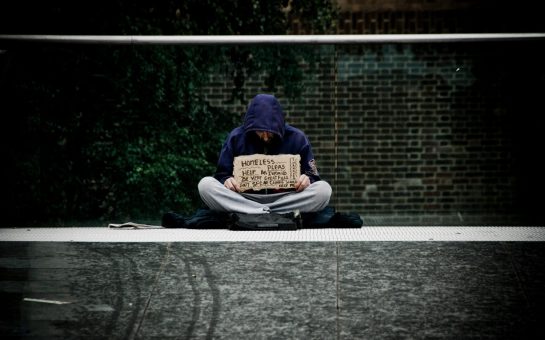Rough sleeping among young people in London has soared, with many refugees affected, but experts claim the true numbers likely exceed current estimates.
The number of people aged 18-25 sleeping rough across London boroughs has risen by nearly two-thirds since 2022 according to a report by the Combined Homelessness and Information Network (CHAIN).
According to the report, 687 young people aged 18-25 were recorded as sleeping rough within the Greater London Authority area in 2021/22. By 2023/24, this number had risen sharply to 1,126.
Daniel Dumoulin, Director of Development and External Affairs at the homelessness charity DePaul UK, noted that while the CHAIN report is one of the world’s best tools for tracking rough sleeping, it relies on visible counts, meaning the actual number of people sleeping rough is likely much higher.
Dumoulin said: “Young people, particularly young women, tend to be more fearful and feel more vulnerable sleeping rough, so hide away in parks or walk around all night long.
“They are less likely to be seen sleeping rough, so less likely to receive support as well.
“It’s the perfect storm and I think it keeps on getting worse.”
The report also outlines that most of the people sleeping rough on London streets are male, with 9,844 compared to 1,870 women in 2023/24.
It is also not just the 18-25 bracket that is rising, the total number of people seen sleeping rough rose from 8,329 in 2021/22 to 11,993 in 2023/24.
One main reason Dumoulin cited for the rise was people being evicted from government asylum accommodation.
DePaul UK’s pilot “Young People’s Rough Sleeping Census Report” revealed that the most common type of housing young people had left before becoming homeless was asylum accommodation.
Dumoulin said: “In October last year, more than 800 people slept rough in just one month after leaving government asylum accommodation.
“That was due to rules changing around how long people have to stay in that accommodation once they’ve got their refugee status.”
In 2023, the Home Office made significant changes to the move-on process and brought forward the time when refugees need to move out to when a person’s decision is served, rather than when they get their BRP (now e-visa).
They have now reverted to the pre-August 2023 timeline.
A spokesperson for the charity Refugee Council said: “The majority of notices to quit asylum accommodation seen during that time were for periods closer to the minimum seven days allowed by the asylum support regulations, with some cases of notices to quit being served with as little as two days’ notice.
“These changes effectively cut the time people can source alternative accommodation, explaining the steep rise in refugee homelessness.”
Young Roots, a London-based charity working with refugees and asylum seekers aged 11-25, have been working with refugees forced into sleeping rough after the rule changes.
Young Roots CEO Paola Uccellari said: “A 19-year-old torture-survivor from Sudan was granted refugee status by the Home Office.
“He was then issued an eviction letter giving him 28 days’ notice to vacate his asylum hotel.
“He approached the local authority for support, but was told the next available assessment appointment was in three weeks’ time but he would not receive Universal Credit for five weeks.
“He slept in the car park outside his former asylum hotel for weeks before a room in a supported hostel was found by the local authority housing team.”
Another reason for this increase is the rent inflation in London.
The ONS released figures stating that rent inflation in London was 9.8% in the 12 months to September 2024.
Uxbridge and South Ruislip MP Danny Beales said: “We’ve seen an explosion in rental costs in the whole country, but particularly in London.
“There’s both increased demand on properties post-COVID, but also the increasing interest rates that we have seen since the Liz Truss budget.
“That’s been reflected in mortgages going up, and therefore landlords also passing on a lot of that cost to the tenants.”
Dumoulin said this is compounded by the different entitlements within the Universal Credit system for under 35s.
Under 35s can only claim the shared accommodation rate for housing support under the current system.
Dumoulin said: “It’s one of the ways in which young people are effectively discriminated against by the benefit system.”
The Londoners reached out to the Department for Work and Pensions, but they have not responded.
Dumoulin has called on the new government to abolish the age disparity with the shared accommodation rate in the Universal Credit system.
Beales MP said: “The government has committed to a homelessness strategy, which is good after many years of a lack of strategy nationally.
“It seems near impossible, but I think we always have to remember that the last Labor government did almost end rough sleeping.”





Join the discussion